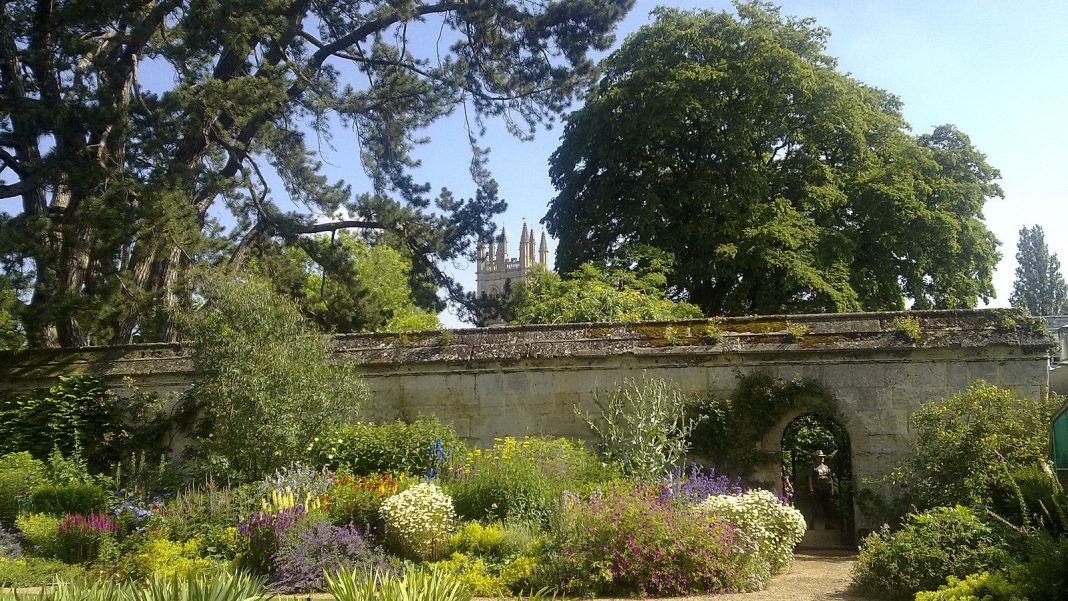Trinity term at Oxford University is defined by wisteria, wild swimming, and warmth. Students find themselves torn between revelling in weather that is finally outdoor-seating-at-the-pub acceptable and piles of revision notes, the unwelcome signal of incoming examinations.
During our unexpected (but lovely) heatwave in late April, my friends and I found ourselves on the quad, writing our essays and solving our equations in the presence of the blooming tulips, blissfully unaware that the grass was slightly too damp. The sun was out and so, naturally, were we, making the most of spring amidst our workloads. Our quad, the backdrop of Balliol’s history, became the court for impromptu games of catch, the talk-show-armchair for our shared anecdotes, the concert hall where we blasted our premature summer playlists. The quad was no longer simply the quad. Nature had taken hold, beckoning us to stay a while, and, in doing so, transformed the square of grass into a stage, each of us performing our part. Real-life theatre occurring in real time.
Open-air performances capture this sincerity, whether it’s the authenticity of a conversation between friends or an argument between lovers. When the wind riots around the actors on stage, when the hubbub of city life strikes as a character storms offstage, there is no greater confirmation of how honest theatre can be in relaying the human condition. Last summer, I was fortunate enough to see ‘Much Ado About Nothing’ performed at The Globe. There is certainly a difference between reading a play and performing it, perhaps most profoundly understood when perceiving Shakespeare’s works in their intended form. Costumes in their full vibrancy and certain words of certain lines enunciated just so. I remember the warmth of the day, the humidity of late July blanketing the onlookers within the circular playhouse, a comedic scene timed perfectly to an airy breeze, sending a wave of cheer and relief across the audience.
While there is wonder in being enclosed in a small, dark room or a grand, embellished hall – especially in our winter months – with the performance happening in front of you, there is something deeply spirited about theatre that occurs around you. The same breeze entangling in your hair as the actors’, who are portraying characters hundreds of years old. Within Oxford, open-air performances are most frequently found within colleges. A quad, however big or small, once enveloped by the produce of spring, is the most serene backdrop. When paired with the surrounding architecture, to watch an open-air production in our city is to be truly awestruck by your surroundings, and (as a result) to surely miss the first few lines of the play, absolutely enthralled by the pleasant mix of the setting sun, violin strings, and the familiar chime of Shakespeare’s iambic pentameter.
Returning to Oxford this term, the final term of my first year, was an overwhelming feat. The eight weeks stretched ahead of me, days bookended by examinations and dogeared by a homesickness that had already settled in my bones. There is no immediate cure to this condition; Trinity term is known for its dichotomy. Mercifully, Oxford offers an olive branch in the form of outdoor theatre and open-air performances. Whether it be an established ensemble in a college’s gardens, or a conversation between friends splayed on the quad, theatre is everywhere in Oxford. If you are fortunate enough to be relinquished from the hold of examinations, even just for an hour or two, be sure to seek out open-air theatre. Its spirit will be sure to carry you through to summer.


